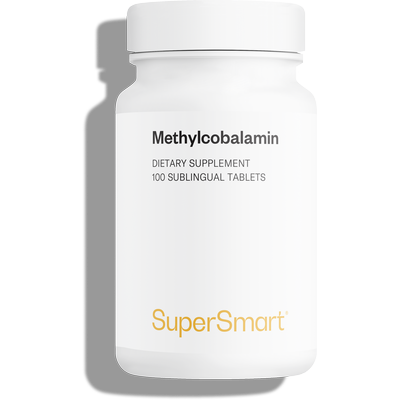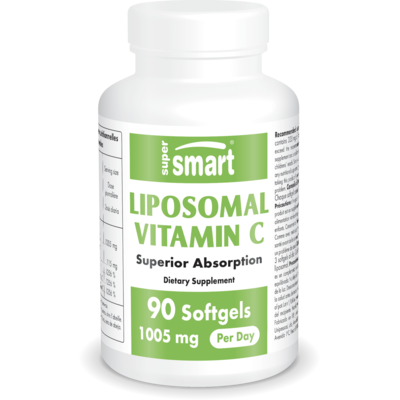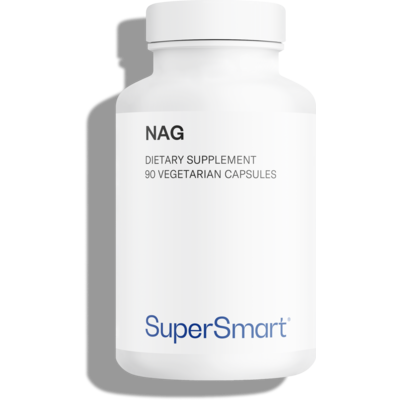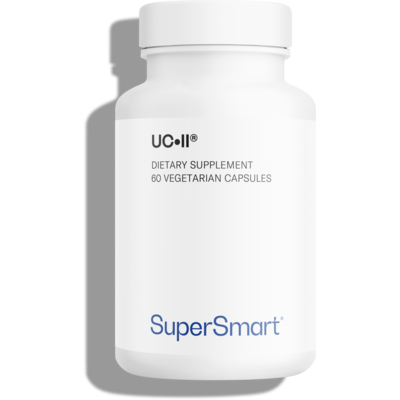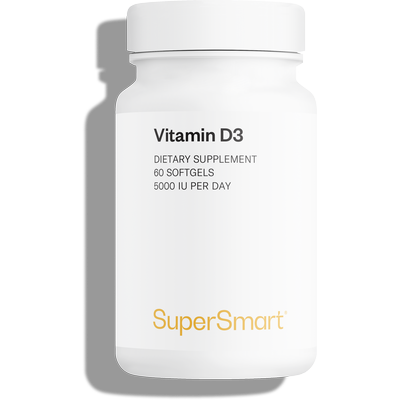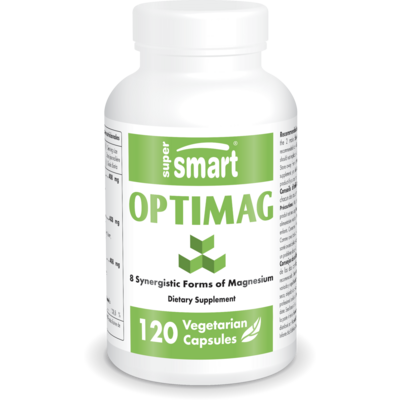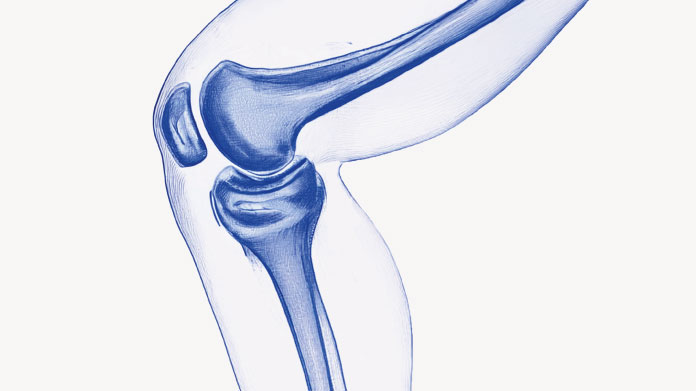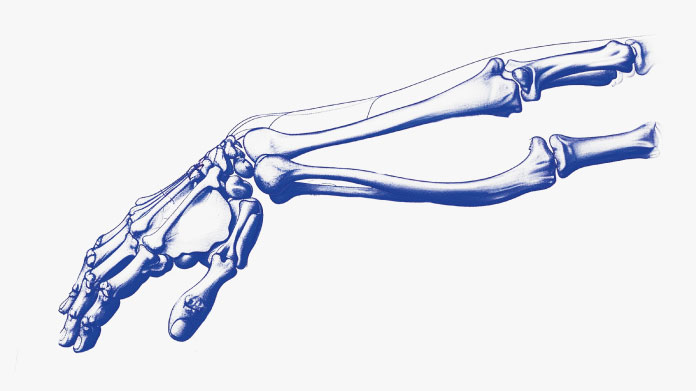Which deficiencies can cause joint pain?
Many studies suggest that deficiency in certain nutrients can cause joint pain in the ankles, knees, and wrists, amongst others. Discover which they are.
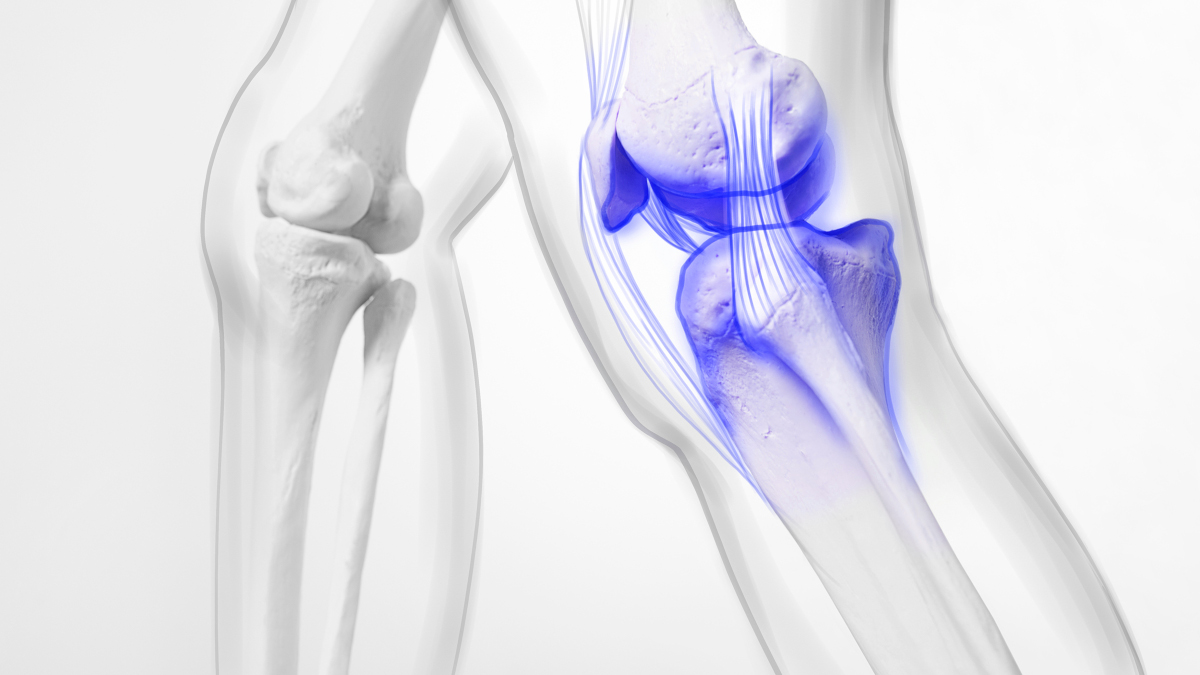
Joint pain: the ankles, knees, and wrists are most often affected
Joint pain is extremely common across the world. In a 2016 study conducted in Europe, for example, 93% of respondents had previously suffered from joint pain, and 1 in 2 had painful joints at the time of the survey (1).
While joint pain primarily affects the ankles, knees and wrists, it can also impact the central part of the skeleton (the spine or pelvis), amongst others.
Which disorders cause joint pain?
Joint pain can be caused by many disorders and diseases, the most common being osteoarthritis, a degenerative joint disease characterized by the breakdown of cartilage. It is much more common in older people because of natural wear and tear of cartilage but also affects those who are overweight, sportspeople, and post-menopausal women.
Another cause of joint pain is arthritis, or inflammation of the joint. It can be acute or chronic and may be the result of a viral infection, an attack of gout (hyperuricemia), trauma, or inflammation of the peripheral tissues around the joint, such as tendons or ligaments (2).
Other causes of joint pain include injuries, infections or genetic factors, as well as a lack of nutrients. While nutrient deficiencies are just one of many factors, they can exacerbate or even cause some of the disorders responsible for joint pain.
Joint pain and nutrient deficiency
Correlation between vitamin D deficiency and arthritis
Firstly, several studies have demonstrated an association between a lack of vitamin D and exacerbation of arthritis (3). Vitamin D is involved in calcium absorption, bone health, and modulation of inflammation.
According to other research, supplementation with vitamin D may reduce the disabling effects of joint pain (4).
That’s why many people choose to take regular vitamin D supplements if they suffer from joint pain (such as Vitamin D3 5000 IU).
Omega-3 for pain relief?
A lack of omega-3 can also aggravate inflammation of the joints and increase pain, especially in conditions such as rheumatoid arthritis.
Many researchers therefore believe omega-3 could have anti-inflammatory properties beneficial for joint problems (see Super Omega 3).
The harmful effects of magnesium deficiency on the joints
Insufficient magnesium intake is known to lead to joint discomfort. It can cause muscle spasms, increased inflammation and disruption of nerve function.
To bridge any potential shortfall and help your muscles, bones, and nervous system function properly, try taking a high-quality magnesium supplement (such as OptiMag, which contains 8 highly-bioavailable forms of magnesium).
Role of vitamin C in the production of collagen, a key component of cartilage
Many studies point to a link between a lack of vitamin C and musculoskeletal pain and pain in the vertebrae.
Vitamin C plays a role in normal collagen production, and thus healthy bones and cartilage. Collagen is a protein that ensures the cohesion, elasticity, and regeneration of tissues and accounts for 67% of the dry weight of cartilage, often implicated in joint pain (5).
A meta-analysis also suggests that giving vitamin C to patients with localized, chronic pain may reduce symptoms. It also suggests vitamin C may have analgesic effects (6).
It may therefore help with joint pain to start supplementing with vitamin C (such as with the product Liposomal Vitamin C). Many individuals suffering from this kind of pain and discomfort opt to take collagen supplements directly (such as UC II®, the only patented form of undenatured type II collagen).
Lack of vitamin B12, homocysteine and inflammation
Finally, most studies agree there is a direct correlation between joint pain, especially that caused by rheumatoid arthritis, and elevated homocysteine, a pro-inflammatory amino acid (7).
These high homocysteine levels are also associated with a lack of vitamin B12, particularly in older individuals (8).
Other studies have demonstrated that supplementing with vitamin B12 helps reduce homocysteine levels (9). And vitamin B12 is important for nerve health, with deficiency potentially affecting the nerves surrounding the joints.
Hence the decision by some people with joint pain to take a course of vitamin B12 supplements (Methylcobalamine).
Two endogenous substances important for joint function
In addition, research has identified two endogenous substances which are essential for normal joint function (10):
- glucosamine, a precursor in cartilage formation and a component of synovial fluid which ‘lubricates’ the joints (see NAG);
- and chondroitin sulfate, another key component of cartilage.
Production of glucosamine and chondroitin may start to decline with age, or as a result of certain conditions. This decrease then contributes to wear and tear of cartilage, thus promoting osteoarthritis.
Many people suffering from joint pain therefore choose to boost their glucosamine and chondroitin sulfate levels through supplementation (both can be found in the synergistic product Joint Support Formula).
Joint pain and the menopause
Did you know that in addition to the classic symptoms (hot flashes, fatigue, vaginal dryness, etc), the menopause can also be accompanied by joint pain,?
This is caused by loss of bone density and decreased muscle mass, which are themselves caused by hormonal changes during menopause. Particularly as cells in the joints called chondrocytes have estrogen-receptive sensors. The fall in estrogen therefore produces hypersensitivity to joint pain (11).
To cope with menopause-related joint pain, doctors generally recommend regular exercise to maintain muscle mass, bone density, and the joints and tendons.
Home remedies for joint pain
Effective home remedies for joint pain include massaging painful joints with special creams, which contains eucalyptus, for exemple.
Another natural remedy recognized for treating joint pain is the resin from Boswellia serrata (a tree that grows in dry, mountainous regions), used for thousands of years in Ayurvedic medicine.
This resin contains boswellic acids, particularly AKBA and KBA, which studies show have analgesic and anti-inflammatory properties. They inhibit the pro-inflammatory enzyme 5-lipoxygenase and MMP-3, which are responsible for breaking down collagen and other molecules involved in joint function, as well as the NF-KB pathway which plays a role in the inflammatory response (12). Boswellia is therefore recognized for relieving joint discomfort and is available in supplement form (such as Super Boswellia, standardized to 20% AKBA).
SuperSmart ADVICE
References
- https://presse.inserm.fr/1-francais-sur-2-souffre-de-douleurs-articulaires/25303/
- https://www.msdmanuals.com/fr/accueil/troubles-osseux,-articulaires-et-musculaires/sympt%C3%B4mes-des-troubles-musculosquelettiques/douleurs-articulaires-plusieurs-articulations
- ISHIKAWA, Larissa Lumi Watanabe, COLAVITE, Priscila Maria, FRAGA-SILVA, Thais Fernanda de Campos, et al.Vitamin D deficiency and rheumatoid arthritis. Clinical reviews in allergy & immunology, 2017, vol. 52, p. 373-388.
- KHAN, Qamar J., REDDY, Pavan S., KIMLER, Bruce F., et al.Effect of vitamin D supplementation on serum 25-hydroxy vitamin D levels, joint pain, and fatigue in women starting adjuvant letrozole treatment for breast cancer. Breast cancer research and treatment, 2010, vol. 119, p. 111-118.
- DEPHILLIPO, Nicholas N., AMAN, Zachary S., KENNEDY, Mitchell I., et al.Efficacy of vitamin C supplementation on collagen synthesis and oxidative stress after musculoskeletal injuries: a systematic review. Orthopaedic journal of sports medicine, 2018, vol. 6, no 10, p. 2325967118804544.
- CARR, Anitra C. et MCCALL, Cate. The role of vitamin C in the treatment of pain: new insights. Journal of translational medicine, 2017, vol. 15, p. 1-14.
- ROUBENOFF, Ronenn, DELLARIPA, Paul, NADEAU, Marie R., et al.Abnormal homocysteine metabolism in rheumatoid arthritis. Arthritis & Rheumatism: Official Journal of the American College of Rheumatology, 1997, vol. 40, no 4, p. 718-722.
- HONG, Haofeng, CHEN, Longting, ZHONG, Yiming, et al.Associations of Homocysteine, Folate, and Vitamin B12 with Osteoarthritis: A Mendelian Randomization Study. Nutrients, 2023, vol. 15, no 7, p. 1636.
- MASON, Joel B. et MILLER, Joshua W. The effects of vitamins B12, B6, and folate on blood homocysteine levels. Annals of the New York Academy of Sciences, 1992, vol. 669, p. 197-203; discussion 203.
- KELLY, Gregory S. The role of glucosamine sulfate and chondroitin sulfates in the treatment of degenerative joint disease. Alternative Medicine Review: A Journal of Clinical Therapeutic, 1998, vol. 3, no 1, p. 27-39.
- FENTON, Anna et PANAY, Nick. Estrogen, menopause and joints. Climacteric, 2016, vol. 19, no 2, p. 107-108.
- KIMMATKAR, N., THAWANI, V., HINGORANI, L., et al.Efficacy and tolerability of Boswellia serrata extract in treatment of osteoarthritis of knee–a randomized double blind placebo controlled trial. Phytomedicine, 2003, vol. 10, no 1, p. 3-7.
Keywords
2 Days
Fast service and good products
Fast service and good products
PERCY
5 Days
fairly quick service
fairly quick service. Decent prices
Vyril A
7 Days
Always pleased with SuperSmart products and service
Product always arrives timely and in good shape. Company is easy to work with. Website is user-friendly.
Diane
8 Days
The h pylori supplement has helped my…
The h pylori supplement has helped my digestive issues. I was diagnosed with h pylori more than once. Also was hospitalized with h pylori several times. Even after taking prescription meds for this condition I still had ongoing digestive issues. So I decided to give this product a try. It has helped with the bloating and inflammation in my stomach and chest. So I gave it a 4 star rating. It helps to calm the pain in my stomach and also acid reflux pains. It is a good product and I would recommend.
Sandra
11 Days
Great Products Great Customer Service
Have purchased from this company many times. A package arrived damaged and with an 1 email to customer service it was fixed. Thank you for great products and great customer service
jd
14 Days
Above and beyond customer service
Above and beyond customer service! Bravo. Love SuperSmart.
Isabella Jimenez
18 Days
Still great
Still great! I have given my opinion on this several times and it remains the same.
WRIGHT Connie
21 Days
I have been very happy with all my…
I have been very happy with all my supplements from supersmart
kirstin Torres
21 Days
Quality supplements
Quality supplements
Edward P
29 Days
Good products at a good price.
Good products at a good price.
HELLAND Edward
31 Days
Above and beyond!
Any will be taken care of by SuperSmart staff.
DOMINIC
33 Days
Quality 3rd party tested products…
Quality 3rd party tested products without fillers
Edward P
34 Days
great products and prices..
great products and prices..
Marie
42 Days
product delivered on time and in good…
product delivered on time and in good shape
Jack
47 Days
Great supplements at great prices
Great supplements at great prices
cynthia b

